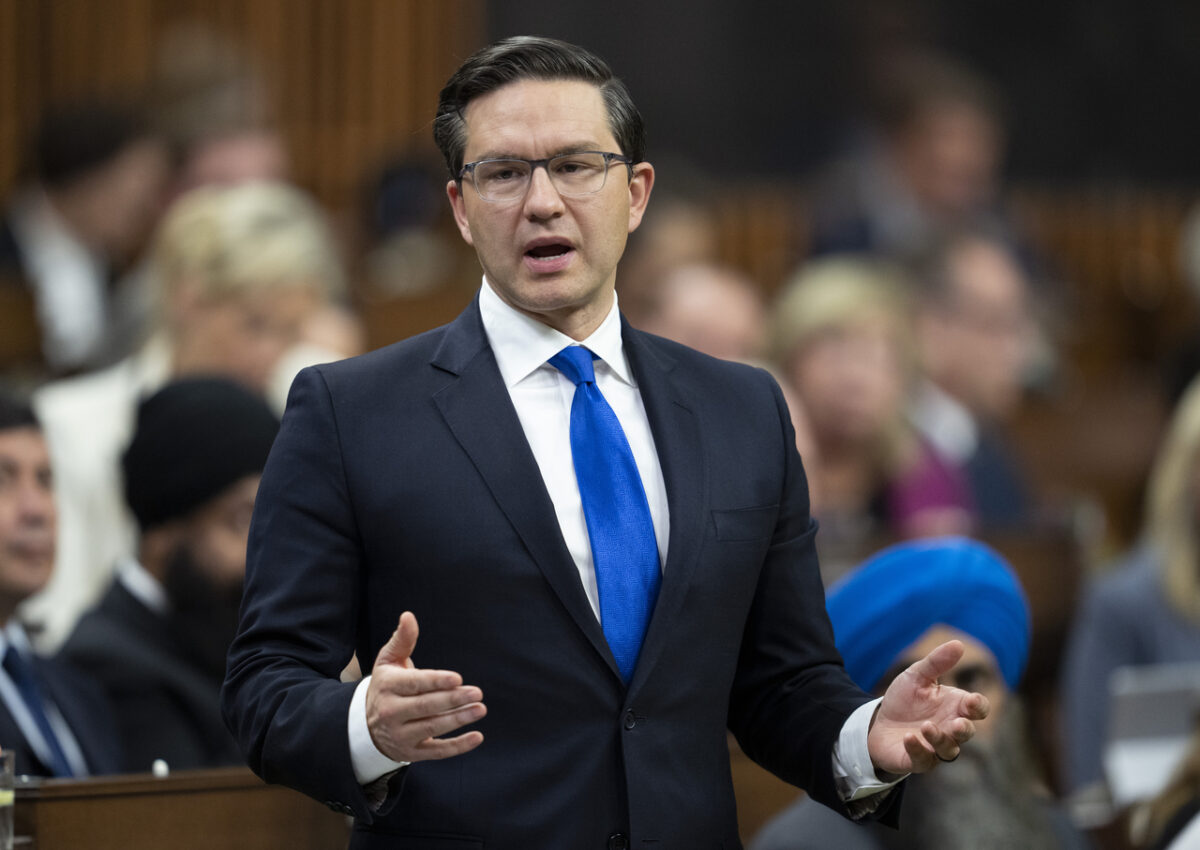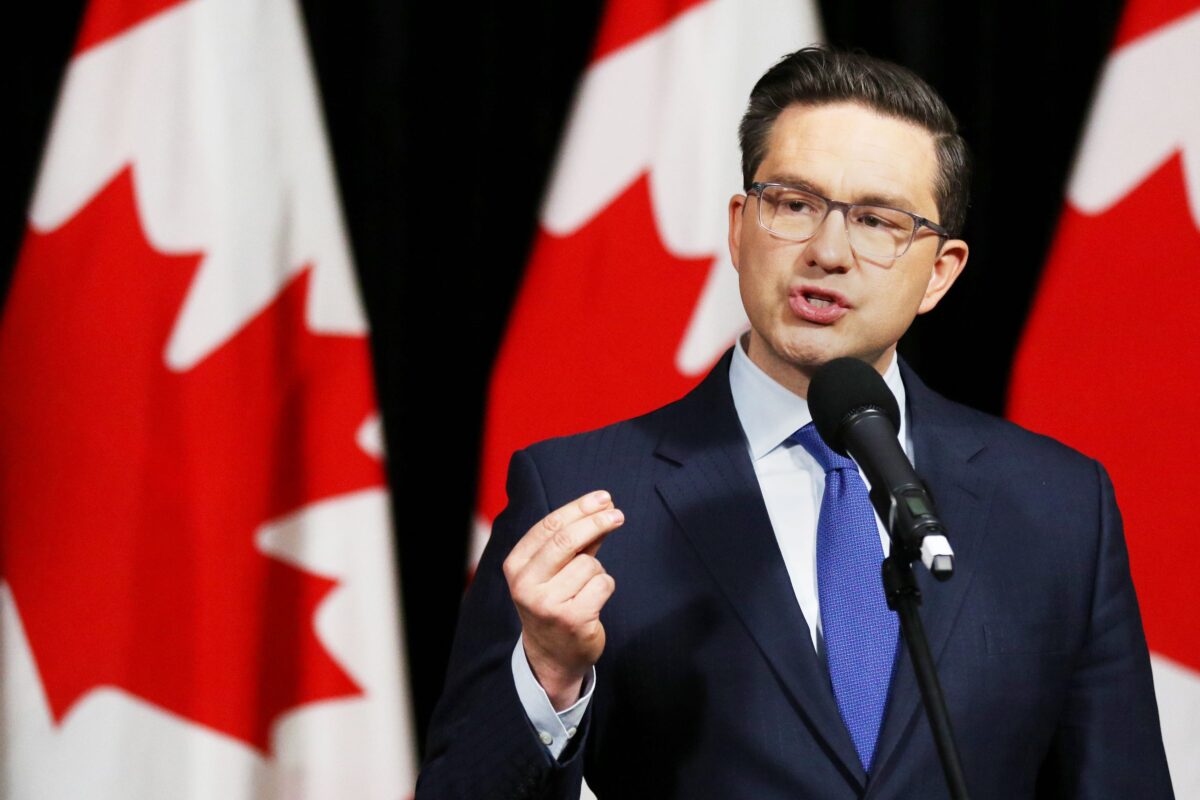Poilievre says House should be recalled as NDP vows to vote down the motion – a clash setting the Canadian political stage ablaze. Pierre Poilievre, leader of the Conservative Party, is demanding Parliament be recalled immediately, citing several critical issues he believes require urgent attention. This move, however, is facing strong opposition from the NDP, who have publicly vowed to vote against the recall.
The ensuing political battle promises significant consequences for both parties and the nation’s legislative agenda.
Poilievre’s arguments center around [insert specific issues here, referencing the Artikel]. He paints a picture of urgent national concerns demanding immediate parliamentary action. The NDP, conversely, argues [insert NDP’s counter-arguments here, referencing the Artikel], suggesting alternative solutions and highlighting the potential disruption a recall would cause. The public’s response and media coverage will play a significant role in shaping the outcome of this high-stakes political showdown.
Poilievre’s Call for a Recall and the NDP’s Response: Poilievre Says House Should Be Recalled As NDP Vows To Vote Down
Pierre Poilievre’s recent demand for a recall of the Canadian House of Commons, met with an immediate vow by the NDP to vote it down, has ignited a significant political firestorm. This situation highlights deep divisions within the Canadian political landscape and raises crucial questions about parliamentary procedure, political strategy, and public perception.
Poilievre’s Call for Recalling Parliament
Poilievre’s call for a recall stems from his belief that the current government is failing to adequately address pressing national issues. He cites several key concerns as justification for his demand, arguing that these issues demand immediate parliamentary attention. The timeline leading to this call involves a series of events, including specific government actions or inactions that Poilievre views as unacceptable.
So, Poilievre wants the House recalled, but the NDP are planning to shoot that down. It’s all pretty intense political stuff, a far cry from the cozy holiday spirit. Speaking of which, check out this article on Christmas with the Ottawa Senators: Memories and go-to movies for a much needed break from the political drama. Anyway, back to the political showdown – it’s going to be a bumpy ride.
His reasoning echoes similar historical calls for recalls in Canadian politics, although the specific issues and political context differ significantly. While past instances may offer some parallels, Poilievre’s call represents a unique moment in contemporary Canadian political dynamics.
NDP’s Vow to Vote Down the Recall, Poilievre says House should be recalled as NDP vows to vote down
The NDP’s opposition to Poilievre’s recall rests on their assessment of the situation and their own political priorities. They argue that a recall is unnecessary and would disrupt the parliamentary process. The potential political ramifications for the NDP are significant, potentially impacting their public image and relationship with other parties.
The NDP’s preferred approach involves alternative strategies for addressing the issues Poilievre has raised, possibly through existing parliamentary mechanisms or alternative political action. They are likely to employ counter-arguments to challenge Poilievre’s justifications, potentially focusing on the practical implications of a recall or highlighting the lack of support for it among the electorate.
Public Opinion and Media Coverage

Public reaction to both Poilievre’s call and the NDP’s response is diverse and complex. Initial public opinion polls and social media sentiment analysis would offer valuable insights into the public mood. Media coverage has been extensive, with varying degrees of support for each party’s position.
| Poilievre’s Coverage | NDP’s Coverage |
|---|---|
| Likely characterized by strong emphasis on the urgency of the issues he raises, potentially portraying him as a strong advocate for the people. Some outlets may highlight potential political opportunism. | Likely framed within the context of the NDP’s broader political agenda, potentially emphasizing the disruption a recall would cause. Some outlets may focus on the NDP’s alternative proposals. |
Different media outlets have adopted varying tones and framing strategies. Some may present a balanced view, while others might lean towards supporting one side or the other. A visual representation could be a divided circle graph showing the percentage of media outlets supporting each side, with a smaller segment representing neutral coverage.
Potential Impacts and Outcomes

The NDP’s decision has potential short-term and long-term consequences. Short-term impacts might include shifts in public opinion and the immediate legislative agenda. Long-term impacts could affect the government’s stability and the public’s trust in the political process. A successful recall would likely lead to a period of heightened political uncertainty, while an unsuccessful one could solidify the government’s position.
Political Strategies and Implications

Poilievre’s call for a recall can be interpreted as a strategic maneuver to gain political advantage. His potential goals might include shifting the political narrative, mobilizing his base, or weakening the government’s position. This action could significantly impact the relationship between the governing party and the opposition, potentially escalating existing tensions.
- Potential Political Implications for the Conservative Party: Increased public profile for Poilievre, potential gains in public support, risk of appearing obstructionist.
- Potential Political Implications for the NDP: Reinforcement of their image as responsible and pragmatic, risk of alienating voters who support a recall, opportunity to highlight their alternative solutions.
- Potential Political Implications for the Liberal Party: Opportunity to demonstrate stability and effectiveness, risk of being seen as unresponsive to public concerns, potential damage to their reputation.
The clash between Poilievre’s call for a parliamentary recall and the NDP’s staunch opposition reveals a deep divide in how Canada’s pressing issues should be addressed. The success or failure of Poilievre’s push will significantly impact the government’s agenda, public perception of both parties, and the overall political landscape. The ensuing debate will likely shape the narrative of the coming months, influencing public opinion and setting the stage for future political battles.
The ultimate outcome remains uncertain, making this a pivotal moment in Canadian politics.
Answers to Common Questions
What are the potential long-term consequences of this political conflict?
So, Poilievre’s pushing for a House recall, but the NDP are planning to shoot it down. This whole political showdown makes you wonder what Singh’s thinking, right? Check out his perspective in Jagmeet Singh’s letter to Canadians to get a better understanding. It might shed some light on why the NDP are opposing Poilievre’s recall request and what their strategy is.
Long-term consequences could include shifts in public trust, changes in party alliances, and potential impacts on future legislation.
How might public opinion influence the outcome?
Strong public support for either Poilievre’s call or the NDP’s stance could significantly sway the political dynamics and influence the government’s response.
What are the historical precedents for similar situations in Canada?
Researching past instances of calls for parliamentary recalls can provide valuable context and insights into potential outcomes.